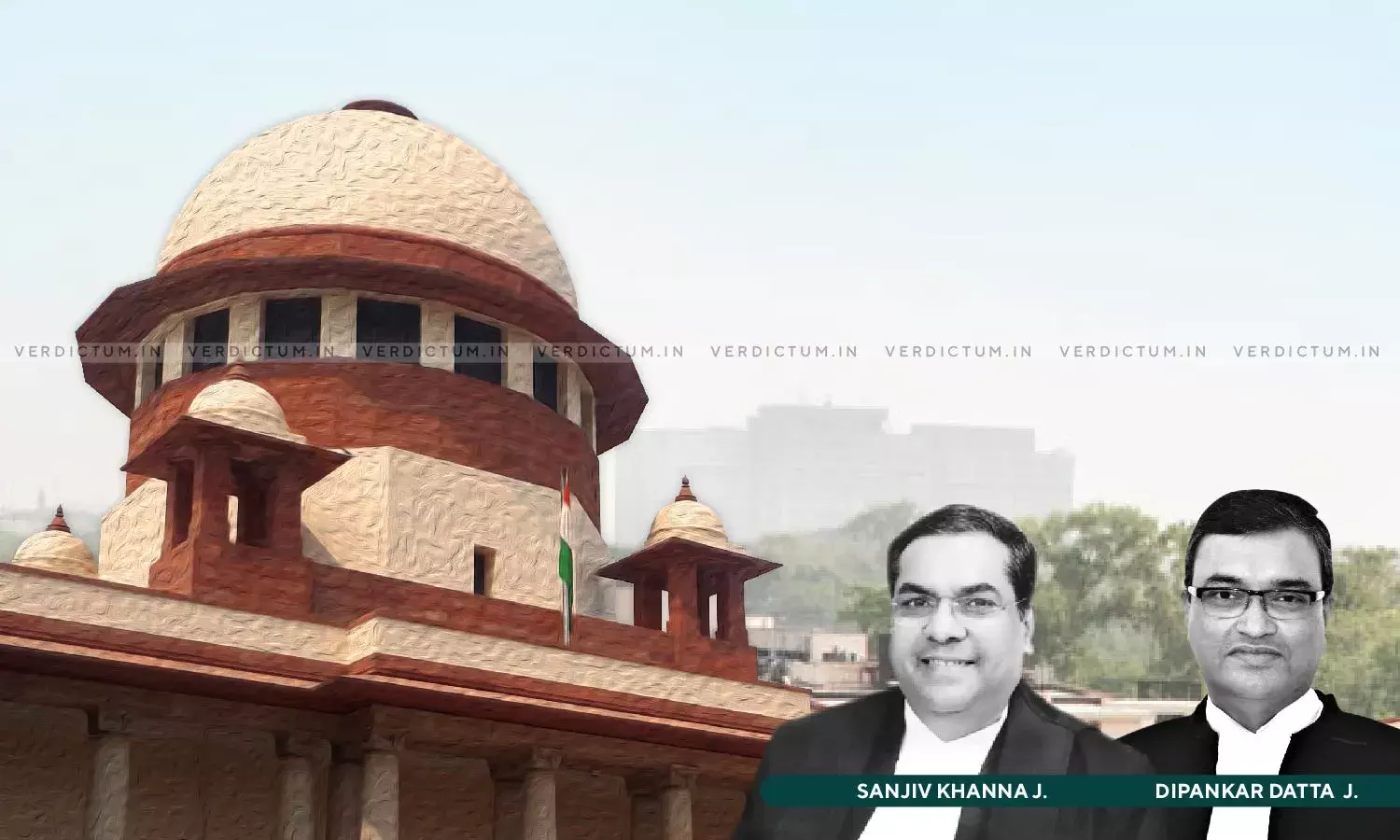Peculiarities Associated With Accused Is Taken Into Consideration While Examining Question Of Granting Interim Bail: Supreme Court
The Supreme Court observed that the Courts take into consideration the peculiarities associated with the person in question and the surrounding circumstances while examining the question of grant of interim bail.
The Court reiterated that the power to grant regular bail includes the power to grant interim bail, particularly in view of Article 21 of the Constitution of India.
The Court noted thus while releasing the Delhi CM Arvind Kejriwal on interim bail in excise policy case.
The bench of Justice Sanjiv Khanna and Justice Dipankar Dutta observed, “While examining the question of grant of interim bail/release, the courts always take into consideration the peculiarities associated with the person in question and the surrounding circumstances. In fact, to ignore the same would be iniquitous and wrong...Power to grant interim bail is commonly exercised in a number of cases.Interim bail is granted in the facts of each case. This case is not an exception.."
Arvind Kejriwal approached the Supreme Court with the present appeal challenging the order and judgment of both the trial Court and the High Court of Delhi, which upheld his arrest by the Directorate of Enforcement.
The Court stated that it cannot conclude the arguments or deliver the final judgment at this point. However, it cited an intervening factor prompting the issuance of the current order: the ongoing 18th Lok Sabha General Elections.
The Court refused to accept the argument that a grant of interim bail/release on this account would be giving premium of placing the politicians in a beneficial position compared to ordinary citizens of this country noting the prodigious importance given to General Elections.
According to the Court, the prosecution has rightly pointed out that Kejriwal had failed to appear despite nine notices/summons. The Court stated that this is a negative factor, but there are several other facets that they are required to take into consideration.
The Court emphasized that Kejriwal, as the CM of Delhi and a leader of a national party, faces serious accusations but has not been convicted. With no criminal history, he cannot be deemed a threat to society.
The Court stated that the investigation in this case is still ongoing, and the legality of the arrest is being contested before the court, awaiting a final decision. The fact situation cannot be compared with harvesting of crops or pleading to look after business affairs.
The Court mentioned the decision in Siba Shankar Das @ Pintu v. State of Odisha and Another, where SC accepting the appeal, deleted the condition imposed by the High Court stipulating that the appellant shall not be involved in any political activities, directly or indirectly. Imposition of this condition, the order holds, would breach fundamental rights.
Finally, the Court directed Kejriwal to be released on interim bail with the condition that he will not visit the Office of the Chief Minister and the Delhi Secretariat.
Cause Title: Arvind Kejriwal v. Directorate of Enforcement (Neutral Citation: 2024 INSC 400)



